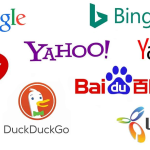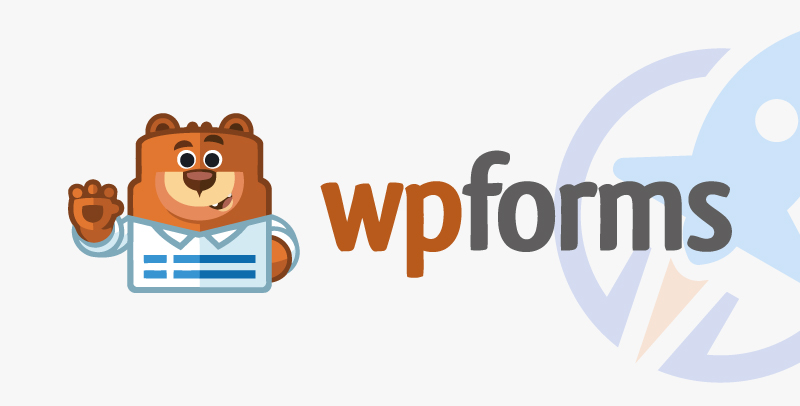SMS marketing has come a long way and continues to evolve to meet the changing needs of businesses and consumers. As we move into 2024, new trends in SMS marketing are emerging, bringing exciting opportunities for businesses to connect with their customers in a highly personalized and engaging way.
One of the key trends shaping the future of SMS marketing is the rise of conversational messaging. Businesses are leveraging chatbot technology to provide interactive and conversational experiences through SMS. This allows customers to engage with brands in real-time and receive instant responses to their inquiries, creating a more personalized and immersive communication channel.
Another trend that is gaining momentum is the use of rich media in SMS marketing. With advancements in technology, businesses are now able to send images, videos, and audio files through text messages, enhancing the visual appeal and engagement of their campaigns.
Furthermore, personalization and segmentation continue to be at the forefront of SMS marketing strategies. By carefully targeting customer segments and tailoring messages based on their preferences and behaviors, businesses can increase open rates, click-through rates, and overall conversion.
In this article, we will explore the latest trends in SMS marketing for 2024 and how businesses can leverage them to drive more customer engagement and achieve their marketing goals.
The Importance of SMS Marketing
SMS marketing has proven to be a highly effective and efficient channel for businesses to reach their target audience. With the majority of consumers owning a mobile phone, SMS messages offer a direct and immediate way to communicate with customers.
According to recent statistics, SMS marketing boasts an impressive open rate of 98%, with the majority of messages being read within minutes of being received. This makes SMS marketing a powerful tool for businesses to deliver time-sensitive information, promotions, and updates directly to their customers’ mobile devices.
Moreover, SMS marketing has a significantly higher click-through rate compared to other marketing channels. Research shows that SMS messages have an average click-through rate of 19%, outperforming email marketing and social media advertising. This highlights the effectiveness of SMS marketing in driving customer engagement and generating actionable leads.
With these compelling statistics, it is clear that SMS marketing should be an integral part of every business’s marketing strategy. Now, let’s dive into the latest trends in SMS marketing for 2024 that can help businesses further enhance their customer engagement and achieve their marketing goals.
Personalization in SMS Marketing
Personalization is not a new concept in marketing, but it continues to play a crucial role in SMS marketing strategies. By tailoring messages to individual customers based on their preferences, behaviors, and demographics, businesses can create a more personalized and relevant experience for their customers.
One way to achieve personalization in SMS marketing is through dynamic content. With the help of data and automation, businesses can dynamically insert personalized information such as the customer’s name, location, or purchase history into SMS messages. This not only grabs the customer’s attention but also makes them feel valued and understood by the brand.
Segmentation is another key aspect of personalization in SMS marketing. By dividing their customer base into smaller segments based on demographics, behaviors, or buying patterns, businesses can send targeted messages that are more likely to resonate with each segment. For example, a clothing retailer can send different SMS offers to male and female customers, or to customers who have previously purchased specific products.
Additionally, personalization can extend beyond the content of the SMS message itself. Businesses can leverage customer data to send messages at the optimal time for each individual customer, increasing the chances of the message being read and acted upon. By understanding the preferences and behaviors of their customers, businesses can ensure that their SMS messages are delivered when they are most likely to be relevant and valuable to the recipient.
Interactive SMS Campaigns
In today’s digital age, customers expect more than just one-way communication from brands. They want to engage with businesses in a meaningful and interactive way. This is where interactive SMS campaigns come into play.
With the rise of chatbot technology, businesses can now create interactive and conversational experiences through SMS. Chatbots are AI-powered virtual assistants that can understand and respond to customer inquiries in real-time. By integrating chatbots into SMS marketing campaigns, businesses can provide instant and personalized responses to customer queries, enhancing the overall customer experience.
Interactive SMS campaigns can take various forms, such as surveys, quizzes, polls, or even games. These campaigns not only engage customers but also provide valuable insights and data for businesses. By encouraging customers to participate in interactive SMS campaigns, businesses can gather feedback, preferences, and opinions, which can be used to further personalize future marketing efforts.
Furthermore, interactive SMS campaigns can be used to drive customer actions and conversions. For example, businesses can send interactive SMS messages with clickable links or buttons that direct customers to a landing page or a specific offer. This allows businesses to guide customers through the sales funnel and prompt them to take desired actions, such as making a purchase or signing up for a newsletter.
SMS Automation and Chatbots
Automation is revolutionizing the way businesses approach SMS marketing. With the help of automation tools and chatbots, businesses can streamline their SMS marketing efforts and deliver personalized messages at scale.
SMS automation allows businesses to set up predefined triggers and workflows that automatically send SMS messages based on specific events or customer actions. For example, businesses can set up an automated SMS campaign to welcome new customers, send order confirmations, or remind customers about abandoned shopping carts. This not only saves time and resources but also ensures that customers receive timely and relevant messages at every stage of their journey.
Chatbots, as mentioned earlier, play a crucial role in automating SMS conversations and providing instant responses to customer inquiries. Chatbots can handle a wide range of customer interactions, from answering frequently asked questions to providing product recommendations. By leveraging chatbot technology, businesses can provide round-the-clock support and engagement, even when their team is not available.
Integrating SMS marketing with other channels
While SMS marketing is powerful on its own, integrating it with other marketing channels can amplify its impact and reach. By combining SMS marketing with email marketing, social media, or even offline channels, businesses can create a cohesive and omnichannel customer experience.
For example, businesses can use SMS to drive traffic to their social media profiles or encourage customers to subscribe to their email newsletters. Likewise, businesses can use social media or email marketing to promote exclusive SMS offers or campaigns. By integrating SMS marketing with other channels, businesses can leverage each channel’s unique strengths and create a seamless customer journey across multiple touchpoints.
Compliance and Privacy in SMS Marketing
As SMS marketing continues to evolve, businesses must prioritize compliance and privacy to maintain customer trust and avoid legal issues. In many countries, there are strict regulations regarding SMS marketing, including consent requirements, opt-out options, and data protection laws.
Before implementing SMS marketing strategies, it is crucial for businesses to familiarize themselves with the regulations and ensure compliance. This includes obtaining explicit consent from customers before sending them SMS messages, providing clear opt-out instructions, and securely handling customer data.
By adhering to compliance and privacy regulations, businesses can build trust with their customers and create a positive brand image. Moreover, respecting customer privacy and preferences can also lead to higher engagement and conversion rates, as customers are more likely to respond positively to messages that they have willingly opted in to receive.
Political Spam Messages in SMS Marketing
As SMS marketing continues to expand its reach, political organizations have increasingly adopted it as a tool to engage voters and disseminate campaign messages. However, this rise in political spam messages has raised concerns among consumers and regulators alike. Political spam messages often involve unsolicited texts that can overwhelm recipients, leading to frustration and a negative perception of the sending party.
These messages typically aim to rally support, solicit donations, or spread information about political agendas and candidates. While they can be an effective means of communication due to the high open rates of SMS, their unsolicited nature often leads to them being perceived as intrusive or spammy.
To address these issues, businesses and political entities must adhere strictly to legal standards and best practices for SMS marketing. This includes obtaining explicit consent before sending messages, providing clear and straightforward opt-out options, and ensuring that the content is both relevant and respectful to the recipient. By implementing these practices, political organizations can use SMS marketing effectively without alienating potential supporters.
The Future of SMS Marketing
SMS marketing is evolving rapidly, and new trends are shaping its future in 2024. The rise of conversational messaging, the use of rich media, and the importance of personalization and segmentation are transforming SMS marketing into a highly engaging and effective channel for businesses.
Businesses can leverage conversational messaging and chatbot technology to provide interactive and personalized experiences through SMS. By incorporating rich media, such as images, videos, and audio files, businesses can enhance the visual appeal and engagement of their SMS campaigns.
Personalization and segmentation continue to be crucial in SMS marketing, allowing businesses to tailor messages based on customer preferences and behaviors. Interactive SMS campaigns, driven by chatbots, enable businesses to engage customers in real-time and gather valuable insights.
Automation and integration with other channels enable businesses to streamline their SMS marketing efforts and create a seamless omnichannel experience. However, businesses must prioritize compliance and privacy to maintain customer trust and avoid legal issues.
Looking ahead, the future of SMS marketing is promising. As technology continues to advance, businesses can expect further innovations in SMS marketing, such as augmented reality experiences, voice-activated interactions, and more sophisticated automation capabilities.
Businesses that embrace the latest trends in SMS marketing for 2024 and adapt their strategies accordingly will be well-positioned to connect with their customers in a highly personalized and engaging way, driving more customer engagement, loyalty, and ultimately, business growth.
The post The Latest Trends in SMS Marketing for 2024 appeared first on Mobile Marketing Watch.













